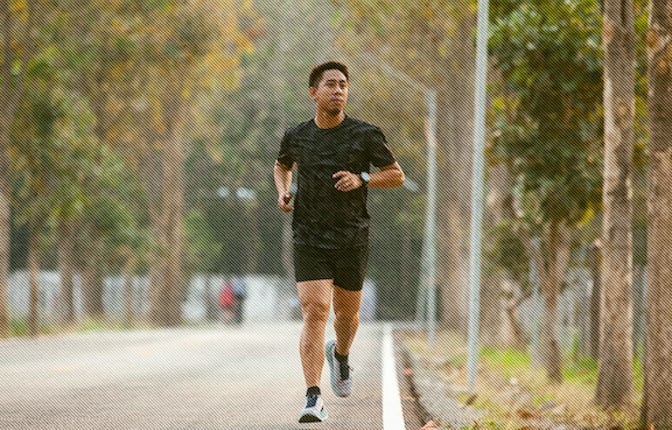Working out right after getting your vaccine might make it work better
A small new study suggests an oddly specific way to boost your booster.

As we move into season three of America: The Pandemic, it feels like we’re all still just doing our best to stay COVID-free. Health experts agree that the best way to stay safe is to get vaccinated, boostered, and stay masked. We now know the vaccines are effective, but what can we do to better our chances — and how far are we willing to go to do that? A new study suggests that doing 90 minutes of cardio after you get vaccinated can increase your immune response to both the COVID vaccines and the flu vaccine.
The study, which was published over the weekend in the journal Brain, Behavior, and Immunity, examined the immune response in healthy adults aged 18-87 who said they exercised regularly (this last part’s important). Experiments were only conducted on 70 human volunteers, which is a small sample size, so take that into consideration.
Blood was drawn from each of the participants to check antibody levels. Then each of them received either the first or second dose of the COVID vaccine or the influenza vaccine and were instructed either to chill out after or to exercise moderately for 90 minutes.
What researchers found was that while antibody levels increased predictably in all participants, people who did cardiovascular exercise for 90 minutes — either on a stationary bike in the lab or by taking a vigorous walk — after vaccination had the highest antibody levels of all both two and four weeks after vaccination.
Isn’t 90 minutes kind of a long workout? Sure, it’s not that much of your day, but it’s kind of a bizarrely specific amount of exercise. Turns out, researchers were precise for a reason. “It is important to remember that quite a sustained effort was needed, 90 minutes at an increased heart rate,” Carmine Pariante, a professor at King’s College London and editor of the journal the study appeared in, told the New York Times.
Scientists decided on 90 minutes as the ideal workout time because previous studies they had done — which are unpublished — suggested that it takes that amount of cardio to increase interferon alfa — a substance in the blood that can initiate the creation of immune cells, the New York Times reported. Volunteers worked out on stationary bikes in the lab or took vigorous walks that kept their heart rates between 120 and 140 bpm for 90 minutes.
In case you’re wondering, no, exercising less did not have the same results. Researchers also asked some participants to exercise for 30, 45, or 60 minutes, but those individuals did not get a significant boost in their antibody levels.
Also, if you’re worried about any post-jab exercise increasing side effects, don’t. Researchers found that people who exercised after the jab didn’t have any more side effects than anyone else, but they also didn’t have any fewer. Basically, exercise doesn’t seem to have a measurable impact on side effects at all.
To confirm their findings, researchers repeated this whole experiment on 80 mice. Mice who jogged after vaccination had the same results as humans — exercise increased their interferon alpha levels. But when scientists chemically blocked the mice from producing interferon alphas, exercise had minimal effect on antibody levels, the Times reported. What this means is that exercise boosts your response to vaccination at least partly by increasing interferon alphas.
Here’s the thing: This is a small study, so it’s going to need to be replicated. That being said, the study tracks because it lines up with a lot of other recent research about exercise, immunity, and COVID. Most health experts already agree that exercise is an important immune booster, so it can’t possibly hurt to take a jog after you get your next jab. If you want to be able to keep your bpm up for a full 90 minutes, though, you might want to get started now. So it makes more sense to integrate exercise into your daily life instead of, say, trying your first marathon post vax.